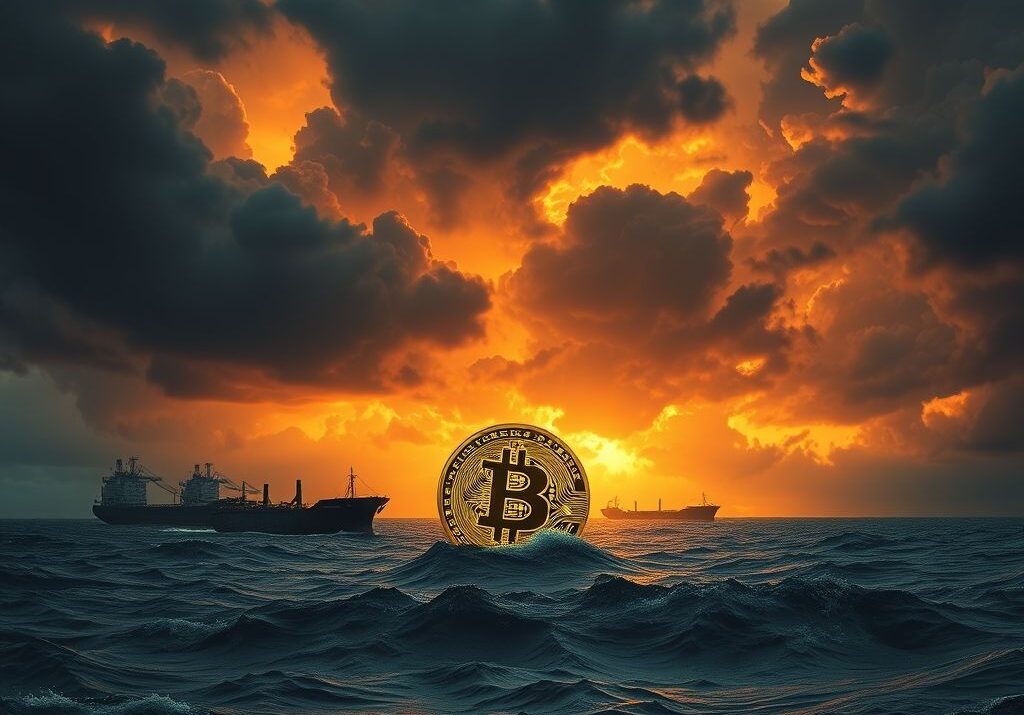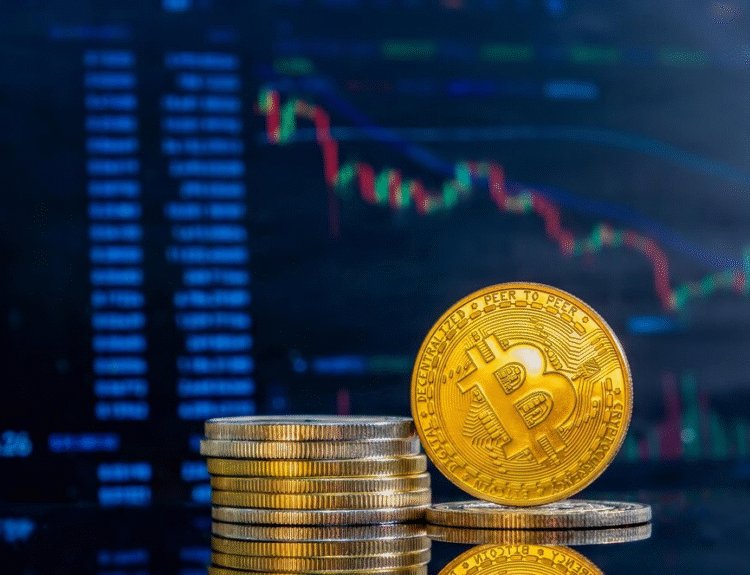Okay, so I stumbled upon something pretty interesting today from Cointelegraph, and it’s got me thinking about Bitcoin’s potential rollercoaster ride this weekend. The headline? “Closing Strait of Hormuz is biggest risk to BTC price this weekend — Analyst.”
Now, you might be thinking, “What does a waterway in the Middle East have to do with my Bitcoin?” Well, buckle up, because the connection is more direct than you might imagine.
The article highlights that if Iran were to close the Strait of Hormuz, a critical chokepoint for about 20% of the world’s oil supply (according to the U.S. Energy Information Administration), risk assets, including crypto, would likely take a significant hit. Why? Because oil price spikes trigger economic uncertainty, which in turn sends investors running for the perceived safety of cash or traditionally stable assets, generally avoiding riskier investments like Bitcoin.
Think of it like a domino effect. Strait closes, oil prices soar, inflation worries intensify, and investors get nervous. That nervousness translates into selling pressure on assets like Bitcoin. We’ve seen similar patterns before. For instance, geopolitical tensions surrounding Russia’s invasion of Ukraine in early 2022 sent shockwaves through the financial markets, impacting crypto alongside stocks. Bitcoin experienced significant volatility during that period, reflecting the broader market anxieties.
Furthermore, the psychological impact shouldn’t be underestimated. Fear, uncertainty, and doubt (FUD) can spread quickly in the crypto market, often leading to rapid price corrections, irrespective of the actual immediate impact. Remember the Evergrande situation in China back in 2021? While not directly crypto-related, the fear of contagion caused a significant dip in the Bitcoin price.
The article also touches on how this situation could play out especially quickly during a weekend, when trading volumes are typically lower and markets are more susceptible to sudden swings. That lack of liquidity could amplify any downward pressure.
Now, I’m not saying the Strait will close, or that Bitcoin will crash. But it’s definitely something to keep an eye on. Staying informed is key.
Key Takeaways:
- Geopolitical events can directly impact Bitcoin’s price. Don’t ignore world events, especially those affecting global economics and energy markets.
- Oil price spikes = investor jitters. Keep an eye on oil prices as a leading indicator of potential risk-off sentiment.
- Weekends can amplify volatility. Be extra cautious on weekends due to lower trading volumes.
- FUD is real. Don’t let fear dictate your investment decisions. Do your own research.
- Diversification is your friend. Don’t put all your eggs in one basket. Spread your investments to mitigate risk.
FAQ:
- What is the Strait of Hormuz? A narrow waterway between Iran and Oman that connects the Persian Gulf to the Gulf of Oman and the Arabian Sea. It’s a crucial route for oil tankers.
- Why is the Strait of Hormuz so important for the oil market? A significant percentage of the world’s oil supply passes through this strait. Any disruption would have a major impact on global oil prices.
- How would closing the Strait of Hormuz affect the global economy? It would likely lead to a surge in oil prices, higher inflation, and increased economic uncertainty.
- Why does economic uncertainty affect Bitcoin? Bitcoin is often considered a risk asset, and investors tend to sell off risk assets during times of economic uncertainty.
- Is Bitcoin always correlated with the stock market? While not perfectly correlated, Bitcoin often moves in tandem with the stock market, especially during times of market stress.
- What other geopolitical events could impact Bitcoin’s price? Major conflicts, political instability, and changes in international trade policies could all affect Bitcoin.
- How can I stay informed about these events? Follow reputable news sources, financial analysts, and crypto experts.
- Should I sell all my Bitcoin if the Strait of Hormuz closes? Not necessarily. Consider your own risk tolerance, investment goals, and the overall market conditions.
- What is FUD? Fear, uncertainty, and doubt. It’s a common tactic used to spread negative sentiment and manipulate markets.
- How can I avoid being influenced by FUD? Do your own research, stay calm, and make rational investment decisions based on your own analysis.






